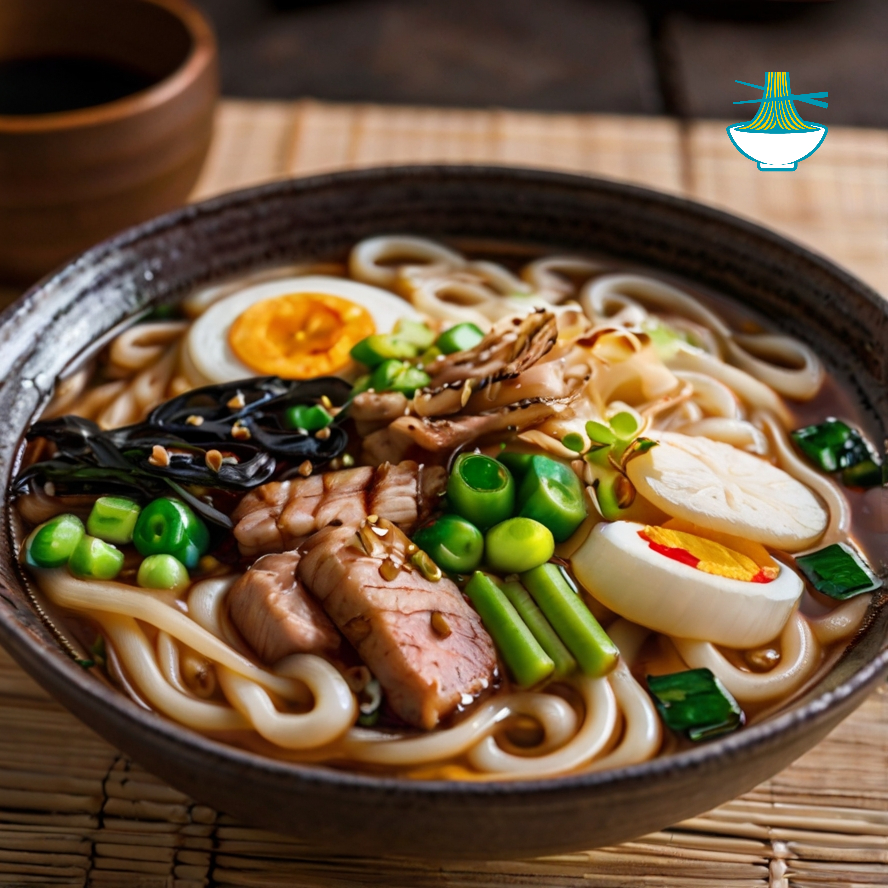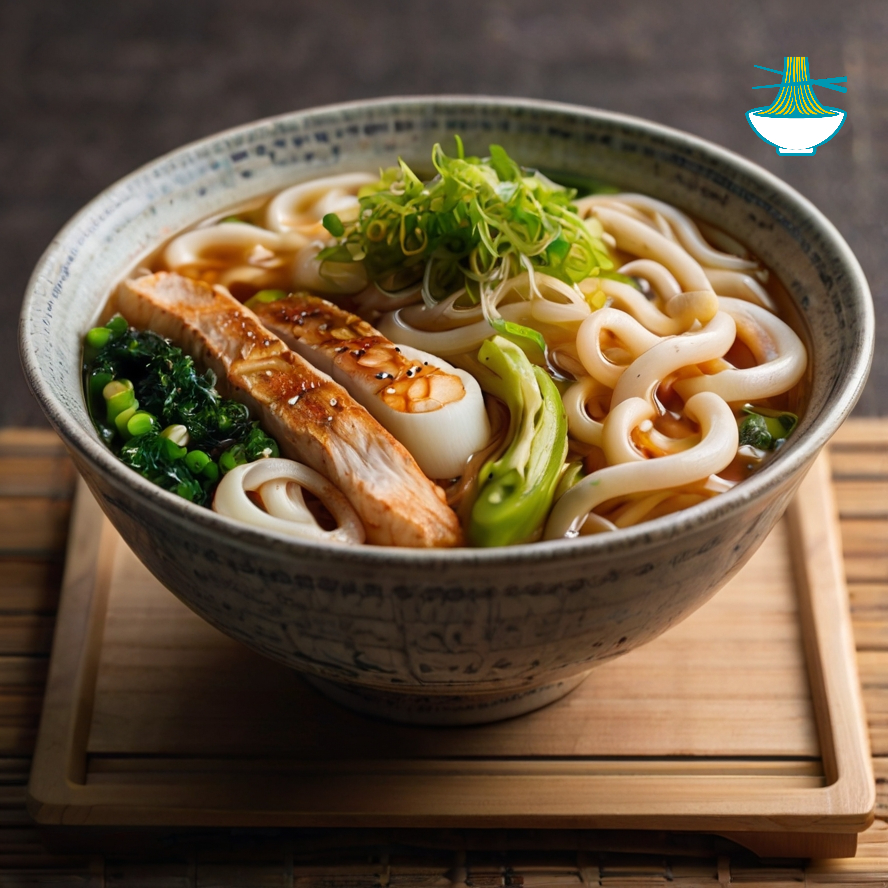Discover the rich and comforting world of udon noodles, a staple in Japanese cuisine. Learn about their history, how they're made, and the variety of ways they can be served, from traditional broths to modern interpretations. Whether you're a udon enthusiast or new to these delicious noodles, explore recipes and tips to enjoy this hearty dish at home.
Here's a simple recipe for making Udon noodles served in a flavorful broth:
Ingredients:
- 200g Udon noodles
- 4 cups dashi (Japanese soup stock)
- 1/4 cup soy sauce
- 2 tablespoons mirin
- 2 tablespoons sake
- 1 tablespoon sugar
- Optional toppings: sliced green onions, nori (seaweed), kamaboko (fish cake), tempura crumbs, boiled egg, thinly sliced meat (such as beef or pork)
Instructions:
1- In a medium pot, combine the dashi, soy sauce, mirin, sake, and sugar. Bring to a simmer over medium heat.
2- While the broth is heating, cook the udon noodles according to the package instructions. Drain and set aside.
3- Once the broth is simmering, add the cooked udon noodles to the pot. Let them simmer in the broth for 1-2 minutes to absorb the flavors.
4- Ladle the udon noodles and broth into serving bowls. Add your desired toppings, such as sliced green onions, nori, kamaboko, tempura crumbs, boiled egg, or thinly sliced meat.
5- Serve hot and enjoy the comforting flavors of this classic Japanese dish!
Feel free to customize this recipe with your favorite toppings or additional seasonings to suit your taste.
Nutritional Values:
Here are the approximate nutritional values for the ingredients used in the Udon noodle recipe:
Udon noodles (200g):
- Calories: 248
- Protein: 8g
- Carbohydrates: 49g
- Fat: 1g
- Fiber: 2g
benefits:
- Provides a source of carbohydrates for energy.
- Contains some protein, which is important for muscle repair and growth.
Dashi (4 cups):
- Calories: 40
- Protein: 1g
- Carbohydrates: 10g
- Fat: 0g
- Fiber: 0g
benefits:
- Can be low in calories and a good source of flavor for dishes.
- May contain minerals from the ingredients used to make the stock.
Soy sauce (1/4 cup):
- Calories: 32
- Protein: 2g
- Carbohydrates: 4g
- Fat: 0g
- Fiber: 0g
benefits:
- Contains antioxidants and may have anti-inflammatory properties.
- Provides a rich umami flavor to dishes.
Mirin (2 tablespoons):
- Calories: 60
- Protein: 0g
- Carbohydrates: 15g
- Fat: 0g
- Fiber: 0g
benefits:
- Adds sweetness and flavor to dishes.
- Contains small amounts of vitamins and minerals.
Sake (2 tablespoons):
- Calories: 48
- Protein: 0g
- Carbohydrates: 2g
- Fat: 0g
- Fiber: 0g
benefits:
- Can have a mild relaxing effect when consumed in moderation.
- Contains some antioxidants.
Sugar (1 tablespoon):
- Calories: 49
- Protein: 0g
- Carbohydrates: 13g
- Fat: 0g
- Fiber: 0g
benefits:
- Sugar enhances the flavor of foods, making them more palatable and enjoyable. It’s commonly used to balance the acidity in sauces, dressings, and marinades.
- Sugar acts as a natural preservative in jams, jellies, and other preserves. It helps prevent the growth of microorganisms, extending the shelf life of these products.
These values are approximate and can vary based on the specific brands and quantities of ingredients used.


Comments